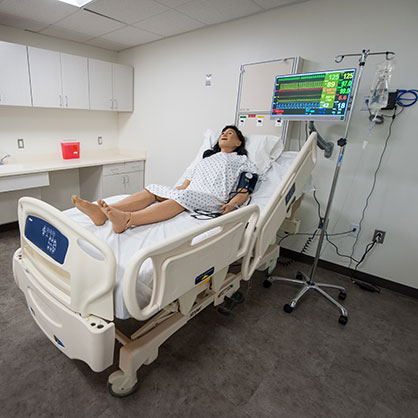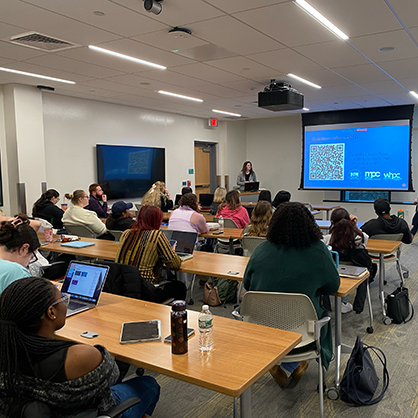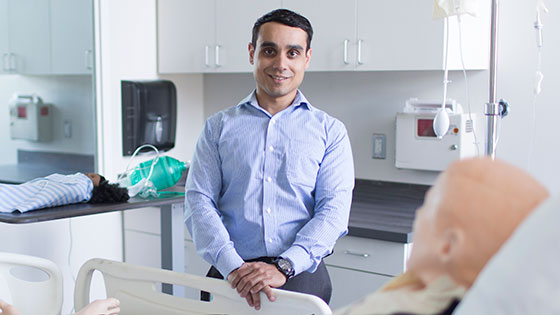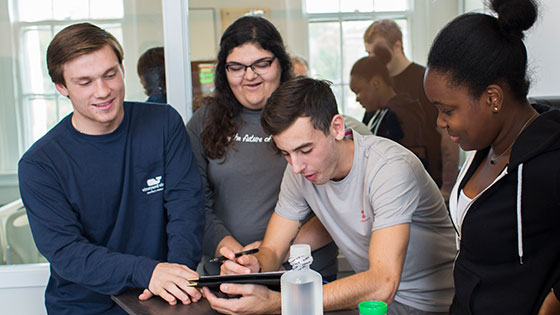Take Your Career as a Paramedic to the Next Level
The University of New Haven is one of only a limited number of colleges and universities across the country that offers a degree competition program that gives paramedics an opportunity to advance their education by earning a Bachelor of Science degree in paramedicine.
Students entering the program must already be certified as paramedics through the National Registry of Emergency Medical Technicians (NREMT). Students accepted to the program will be able to waive 62 of the 80 major requirement credits through their standing as a nationally registered paramedics. Additional previous college credits may be applied up to 96 credits.
Learn from professors who are dedicated to your success.
Our faculty are leaders and innovators in their fields, bringing both deep professional experience and academic rigor to the classroom.
Courses Satisfied through NREMT Certification
Your standing as a certified paramedic through the National Registry of Emergency Medical Technicians satisfies the majority (56 of 80 credits) of the major requirements to earn a bachelor’s degree in paramedicine. The following courses are granted as transfer courses for being a certified NREMT Paramedic:
- PARA 1175: Emergency Medical Technician I
- PARA 2275: Emergency Medical Technician II
- PARA/BIOL 2230: Anatomy and Physiology for Paramedicine I
- PARA 3333: Cardiology III
- PARA/BIOL 2231: Anatomy and Physiology for Paramedicine II
- PARA 3334: Psychiatric and Behavioral Emergencies for Paramedics
- PARA 2234: Patient Examination for Emergency Medical Services
- PARA 3335: Toxicology for Paramedics
- PARA 2235: Introduction to Paramedicine
- PARA 3336: Art of Paramedicine
- PARA 2236: Pharmacology for Emergency Medical Services
- PARA 3337: Obstetric and Gynecological Emergencies for Paramedics
- PARA 2237: Prehospital Trauma Care
- PARA 3338: Pediatric Emergencies for Paramedics
- PARA 2238: Medical and Geriatric Emergency Medical Services
- PARA 3350: Clinical II
- PARA 2239: Paramedicine Clinical I
- PARA 3355: Clinical III
- PARA 3331: Cardiology I
- PARA 4432: Environmental Emergencies for Paramedics
- PARA 3332: Cardiology II
Get an inside look at what differentiates the University of New Haven and how your experiences as a student will prepare you for success.

Study Abroad

SHS Facilities
Health Professions Advising Center (HPAC)
Learn MoreSHS Study Abroad Opportunities
Watch Full ScreenPre-Medical Studies Designation
Learn MoreNationally Recognized Center for Career Development
All University of New Haven students have access to the many resources available through the University’s Career Development Center, which has been named one of the best in the nation by The Princeton Review.
From career assessments, networking, and job shadowing to on-campus interviews and salary negotiation, the Career Development Center provides the skills and connections to identify a meaningful career and an opportunity to pursue your passion.
Learn MoreNews

The Charger Blog
Critical Training Prepares Students to Respond to Opioid Overdoses with Lifesaving Care
A training session held recently at the University brought together Chargers and a community nonprofit, teaching students how to administer NARCAN to reverse the effects of an opioid overdose. The session helped them learn how they can be changemakers in a nationwide crisis, teaching them how to offer support while also reducing the stigma of opioid addiction.
Various Dates
- Information Sessions and Campus Tours 10 a.m. or 1 p.m.
-
Admission Requirements
Whether you're still in high school or are transferring from another college, we offer full- and part-time opportunities for undergraduates from inside the U.S. and abroad. The admission process can begin as early as the end of your high school junior year.
The Application Process -
Financial Aid Opportunities
We offer a comprehensive financial aid program, with students receiving assistance in the form of grants, scholarships, student loans, and part-time employment. Funds are available from federal and state governments, private sponsors, and from university resources. More than 85 percent of the University's full-time undergraduate students receive some form of financial assistance.
Learn More

